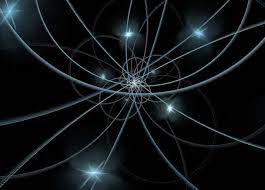In a groundbreaking achievement, European physicists have recently made a significant leap forward in understanding the fundamental force of gravity by conducting a groundbreaking tabletop experiment. Led by researchers from Leiden University in the Netherlands, the University of Southampton in the UK, and the Institute for Photonics and Nanotechnologies in Italy, the experiment measured the strength of gravity on an unprecedentedly small scale.
Using an ingenious setup, the scientists managed to measure a force of approximately 30 attonewtons on a particle weighing just under half a milligram. To put this into perspective, an attonewton is equivalent to a billionth of a billionth of a newton, the standard unit of force. This remarkable achievement not only represents a feat of precision measurement but also holds profound implications for the field of physics.
Gravity, despite being a ubiquitous force in our daily lives, is remarkably weak when compared to other fundamental forces, such as electromagnetism and the strong nuclear force. While its effects are readily observable on larger scales, detecting gravitational forces on smaller scales presents significant challenges.
Physicists are particularly interested in testing gravity at these small scales as it could help reconcile the discrepancies between two foundational theories in physics: general relativity and quantum mechanics. General relativity provides a comprehensive framework for understanding gravity on large scales, while quantum mechanics governs the behavior of particles and fields on the smallest scales.
The inherent contradictions between these two theories have long perplexed physicists, and the quest to develop a unified theory of “quantum gravity” remains one of the most pressing challenges in modern physics. By conducting experiments that probe gravity at increasingly smaller scales, scientists hope to uncover clues that could ultimately lead to the development of a unified theory that reconciles the macroscopic world described by general relativity with the microscopic realm governed by quantum mechanics.
The recent achievement by European physicists represents a significant step forward in this endeavor. Not only does it demonstrate the remarkable precision and ingenuity of experimental physics, but it also opens up new avenues for exploring the mysteries of the universe’s fundamental forces.
As physicists continue to push the boundaries of what is possible, experiments conducted on the kitchen table may hold the key to unlocking some of the universe’s most profound secrets, paving the way for a new era of discovery in the field of theoretical physics.
